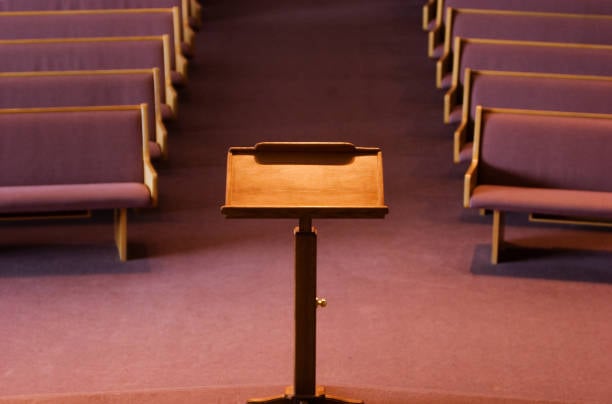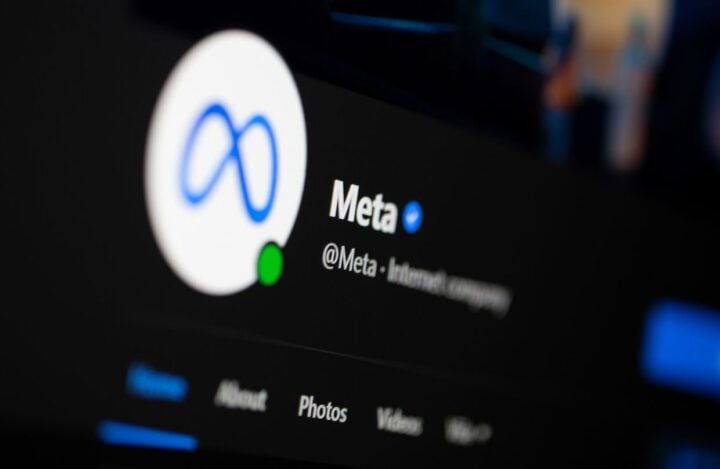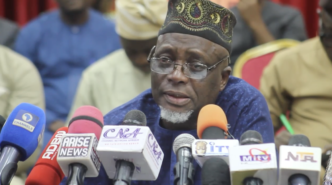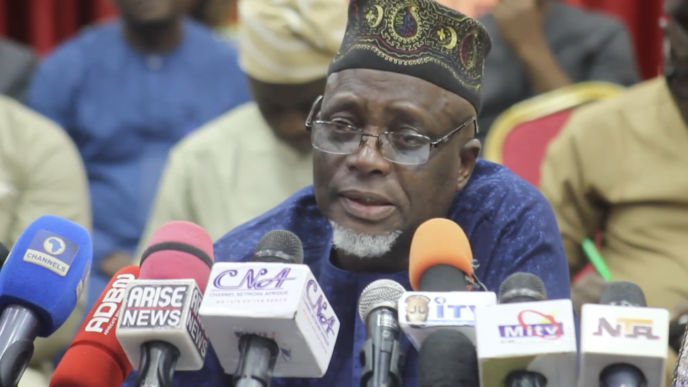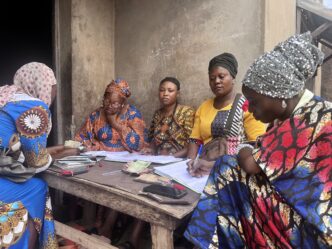Podium or pulpit
BY LEKAN OLAYIWOLA
Prior to his inauguration as Nigeria’s president, Bola Ahmed Tinubu said that in his bedroom, the Bible and the Quran lie peacefully side by side—his and his wife’s holy books “stay with each other peacefully without quarrelling”. It was a quiet but powerful gesture toward Nigeria’s religious plurality. His decision to run with a same-faith vice-president did not fracture the national fabric as many feared.
In fact, by early 2025, it was members of his own religious community who were publicly lamenting that they had not “benefited enough” from the Tinubu administration, especially in terms of appointments. So far, the government has walked a razor-thin line, maintaining a strategic tolerance on religious matters. That in itself is peace-worthy.
Yet, two years after the elections, one fundamental question remains unanswered: Has the handshake between religion and politics delivered substance to the Nigerian people rather than mere symbolic gestures?
Advertisement
Two years ago, as Nigeria geared up for the 2023 presidential election, religious institutions played a pivotal role in shaping the national discourse. From pulpits to public forums, faith leaders under the umbrella of the Christian Association of Nigeria (CAN) and the National Council of Islamic Affairs (NSCIA) set the agenda, calling for education reform, security improvements, anti-corruption measures, and economic justice. Their moral influence was unmistakable, rallying voters and shaping campaign narratives.
Now, two years later, we ask the critical question: Did religious leaders follow through on the agenda they championed? Have they held political leaders accountable for the promises made in their name? Through a meticulous performance tracking exercise, this analysis presents a scorecard that assesses where religious institutions succeeded, where they fell short, and whether they remain a force for governance accountability beyond electoral mobilisation.
Religious engagement: What was promised vs. what is delivered so far
Advertisement
We provide a data-driven sector-by-sector breakdown which reveals the disconnect between election-time advocacy and actual policy influence. The presentation is arranged according to the issues that stood top of mind both in the media reportage and public perception of religious institutions’ engagement with the policies of the Tinubu-led APC government.
Education: Religious bodies like CAN and NSCIA demanded curriculum reform and action on Nigeria’s rising number of out-of-school children. Public support was high (87.5%), and leaders engaged in three major advocacy efforts post-election. Yet, two years later, there is no formal policy change attributable to their pressure.
Security & peacebuilding: Faith leaders consistently condemned ethno-religious violence, urged stronger security appointments, and advocated for moral leadership on security issues. With 100% of surveyed Nigerians supporting their involvement, rhetorical recognition from government officials has occurred, but no institutional security reforms seem to have resulted directly from religious intervention two years into the administration.
Anti-corruption: Religious leaders made sporadic statements about accountability and transparency in governance. Public demand was strong (80% expected faith-led anti-corruption pressure), but engagement remains reactive and episodic. No policy shifts on corruption have been directly linked to religious advocacy, making this one of the weakest accountability areas.
Advertisement
Social justice & equity: Faith-based organisations (FBOs) advocated for ethnic and religious inclusiveness, urging fair representation in government appointments. Some shifts have occurred, particularly in the diversity of political appointees, but the direct role of religious advocacy remains unclear.
Healthcare: Perhaps the biggest missed opportunity, as religious institutions barely engaged with health sector policies. Despite medium priority among survey respondents, faith-driven healthcare reforms remain non-existent. Yet at the legislative level, doctors have complained about draconian laws, which are partly fuelling the exodus of doctors to other countries in search of better working conditions.
Economic justice: Inflation, soaring food prices, and subsidy impacts have been frequent topics of religious sermons, aligning with public frustration over economic policy. Yet, despite government action on subsidy palliatives, there is no evidence linking religious advocacy to tangible economic reforms.
From pulpit promises to policy accountability
Advertisement
The findings paint a stark reality: Nigeria’s religious institutions remain loud in advocacy but weak in governance accountability. While they successfully shape national conversations, they fail to sustain pressure, allowing politicians to co-opt faith narratives during elections but sidestep substantive follow-through.
Why does this happen?
Advertisement
Lack of structured political monitoring: Unlike advocacy groups with independent governance scorecards, religious leaders often operate informally, issuing moral statements but failing to institutionalise accountability mechanisms.
Fragmented faith advocacy: Without interfaith coalitions presenting unified demands, faith engagement is often divided along denominational or sectarian lines, weakening collective bargaining power. Most of the 57 (publicly reported) engagements between religious leaders and institutions have been individualistic and sectional rather than collective and coalition-based.
Advertisement
Overreliance on moral influence: While faith institutions command public trust, their strategy remains rhetorical rather than procedural. While influencing narratives, religious institutions in Nigeria appear to lack effective policy leverage mechanisms.
From symbolism to institutional influence
Advertisement
If religious organisations truly seek political accountability, they must move beyond periodic advocacy and establish formal structures for monitoring governance performance. We suggest the following strategic steps:
-
Institutionalise Government-Religious Accountability Platforms: Faith leaders should demand formal advisory councils, structured policy dialogues, and consistent review meetings with elected officials instead of ceremonial consultations during moments of crisis. The present fire brigade approach is not sustainable.
-
Strengthen Religious Policy Advocacy Capacity: Faith institutions must invest in policy research, establish monitoring frameworks, and data-driven advocacy tools, enabling measurable influence beyond moral commentary.
-
Encourage Interfaith Collaboration on Governance Accountability Cross-religious: Faith-based coalitions can present unified demands, preventing political leaders from fragmenting and sidelining religious voices as is currently the practice, where the government selectively listens to what is convenient to its agenda and largely ignores calls for more far-reaching policy issues.
-
Expand Faith Engagement into Underrepresented Sectors: The data shows that education, security, and corruption receive religious attention, but healthcare, welfare, and social protection policies need stronger faith-driven advocacy.
-
Promote Government Transparency in Responding to Religious Inputs: Religious institutions, working as a coalition (through interfaith dialogue) must prioritise public scorecards optimised to assess government responsiveness to faith-driven policy recommendations. This would keep political leaders accountable, forcing tangible governance actions rather than rhetorical acknowledgements.
The cost of inaction
Two years after religious leaders set the agenda for Nigeria’s elected officials, they risk fading into political irrelevance until the 2027 campaign kicks off again, unless they institutionalise governance accountability mechanisms. Faith institutions hold unparalleled influence, but influence without follow-through is power wasted. If faith leaders wish to remain credible actors in Nigeria’s governance landscape, they must move beyond election-season advocacy and become permanent fixtures in policy accountability.
They must understand that moral suasion is not enough and symbolic presence is insufficient. Real influence requires structured, sustained engagement with governance frameworks. If religious institutions do not adapt, they will remain mobilizers during elections but passive observers, post-electoral victory, leaving Nigeria’s governance vulnerable to unchecked political manoeuvrings.
Faith must serve not just as the nation’s moral compass, but as an institutionalised policy accountability force. The time to shift is now.
Lekan Olayiwola is a researcher on religion and politics in Nigeria. He can be reached at [email protected]
Views expressed by contributors are strictly personal and not of TheCable.
